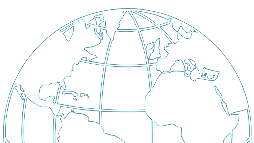An ECI Conferences Series
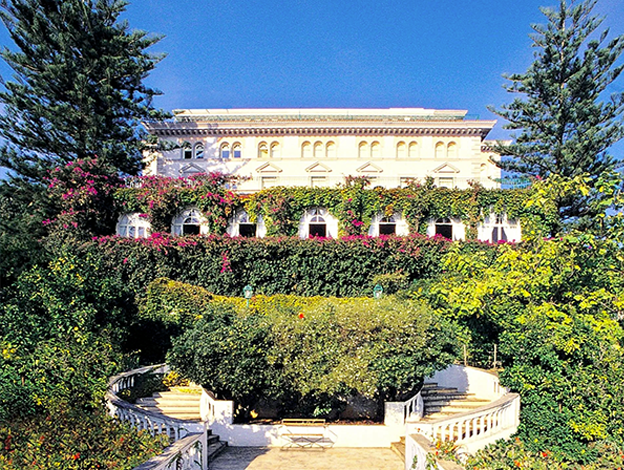
June 7-12, 2026
Grand Hotel San Michele
Cetraro (Calabria), Italy
About This Conference
Building on the success of the 2016 and 2022 conferences held at Grand Hotel San Michele in Cetraro, Italy, and that of the 2018 and 2024 conferences held in Comwell Borupgaard, Denmark, this fifth iteration of the WasteLCA conference will bring together a wide range of delegates from different scientific areas, thereby taking a multi-disciplinary approach to the assessment of municipal and industrial waste management in the framework of a future, as much circular as possible, economy.
The conference focuses on methodologies and Life Cycle Management (LCM) tools - Life Cycle Assessment (LCA), Life Cycle Costing (LCC) and Social Life Cycle Assessment (S-LCA) - which allow a fair and reliable comparison between the performances of different waste and residual resource management solutions. Methodological developments related to these approaches will be considered together with case studies implying general conclusions.
Most current waste and resource management schemes still lack a holistic approach that is able to cover all the sustainability aspects of the whole chain from product design, raw material extraction, production and consumption of goods and services, re-manufacturing and re-use, resource recovery from waste down to its safe final disposal. Moreover, most solutions could be integrated with other sectors in society, mainly those of energy, carbon capture, transport, materials, and chemicals production.
In this framework, the management of municipal and challenging streams (sanitary, radioactive, and mineral waste) requires efficient tools, able to provide reliable (accurate and quantitative) life cycle sustainability assessment methods. Digital technologies (blockchain, IoT, bigdata and AI) could strongly support LCM tools. WasteLCA-5 addresses the latest developments in the area, focusing on the new tools that can be integrated with a conventional LCM approach, providing a fast and accurate estimation of the overall performances of waste and residual resource management solutions.
The program includes keynote speakers, thematic sessions, workshops, and poster sessions. The intention is to stimulate fruitful discussions on innovative ideas and directions to be pursued in future research activities, as well as how these approaches can be transferred to practical application in society.
List of Topics
- LCM tools and methodologies (LCA, LCC, S-LCA) for quantitative assessment of municipal and industrial waste management scenarios
- LCM tools and methodologies for the management of specific challenging waste streams (e.g., sanitary waste; radioactive waste; mineral waste) in a Circular Economy perspective
- LCM tools and methodologies for specific waste technologies and their integration into connected systems (e.g., transport; biorefineries; carbon capture storage and utilization)
- Digital technologies for LCA: integrating blockchain, IoT, bigdata and AI into LCAs
- Prospective LCM tools and methodologies for emerging technologies for waste management and resource optimization
- Life Cycle Engineering and Sustainable Manufacturing
- Integration of Planetary Boundaries with LCA (Absolute Environmental Sustainability Assessment): approaches and case studies
- Application of quantitative tools to support (waste and Circular Economy) policy impact assessment
- Combined use of Environmentally Extended Input-Output (IO), LCA, and/or economic models for assessment of waste & Circular Economy
- Open-source tools and scripts for improved LCM for waste management
- Prospective LCA and other LCM tools for emerging technologies for waste management and resource optimization
- Life Cycle Engineering and Sustainable Manufacturing
- Integration of Planetary Boundaries in LCA for waste management options: approaches and case studies
- Effects of legislation and policy on future waste management criteria in a life cycle perspective.
- Open-source tools and scripts for improved LCA and LCM for waste management
Conference Organization
Chairs
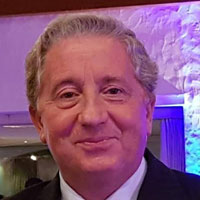
Prof. Umberto Arena
University of Campania “Luigi Vanvitelli”
Dept. of Environmental, Biological and Pharmaceutical Sciences and Technologies
Email: umberto.arena@unicampania.it
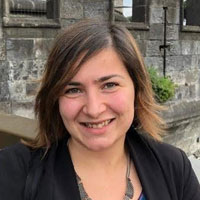
Prof. Filomena Ardolino
University of Campania “Luigi Vanvitelli”
Dept. of Environmental, Biological and Pharmaceutical Sciences and Technologies
Email: filomena.ardolino@unicampania.it
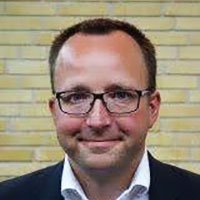
Prof. Anders Damgaard
Denmark Technical University
Dept. of Environmental and Resource Engineering
Email: adam@dtu.dk
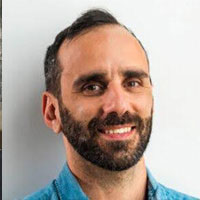
Prof. Massimiliano Materazzi
University College London
Dept. of Chemical Engineering
Email: massimiliano.materazzi.09@ucl.ac.uk
Honorary Chair
Prof. Thomas Christensen
Denmark Technical University
Scientific Advisory Committee
Professor Dezhen Chen (Tongji University, China)
Professor Mario Grosso (Politecnico of Milan, Italy)
Professor Pinjing He (Tongji University, China)
Professor David Laner (University of Kassel, Germany)
Professor Lidia Lombardi (University “N. Cusano”, Italy)
Professor Antonio Massarutto (University of Udine, Italy)
Doctor Kari-Anne Lyng (Norsus, Norway)
Doctor Andrea Paolillo (University College London, UK)
Doctor Davide Tonini (EC-Joint Research Centre, Spain)
Professor Marzia Traverso (RWTH Aachen Univ., Germany)
Doctor Yan Zhao (Beijing Normal University, China)
Local Organizing Committee
Dr. Filomena Ardolino (University of Campania “Luigi Vanvitelli”)
Dr. Francesco Parrillo (University of Campania “Luigi Vanvitelli”)
ECI Liaison
Prof. Franco Berruti
University of Western Ontario, London, Canada
Dept. of Chemical and Biochemical Engineering- ICFAR_Institute for Chemicals and Fuels from Alternative Resources
Email: fberruti@uwo.ca
Special Issue: Waste Management Journal
Supported by co-Editors-in-Chief of the Waste Management Journal, a selection of the best contributions presented at the Conference will be invited to submit manuscripts for a special issue in the Waste Management journal, focused on a topic close to those of the conference. The Guest Editors of the special issue will be professors Arena, Ardolino, Lombardi, and Rigamonti.
General Information about ECI
Engineering Conferences International (ECI) is a not-for-profit, global engineering conferences program, originally established in 1962 that provides opportunities for the exploration of problems and issues of concern to engineers and scientists from many disciplines.
The format of the conference provides morning and late afternoon or evening sessions in which major presentations are made. Poster sessions will be scheduled for evening discussion as well. Available time is included during the afternoons for ad hoc meetings, informal discussions, and/or recreation. This format is designed to enhance rapport among participants and promote dialogue on the development of the meeting. We believe the conferences have been instrumental in generating ideas and disseminating information to a greater extent than is possible through more conventional forums.
All participants are expected both to attend the entire conference and to contribute actively to the discussions. The recording/photographing of lectures and presentations is forbidden. As ECI conferences take place in an informal atmosphere, casual clothing is the usual attire.
Smoking is prohibited at ECI conferences and conference functions.
